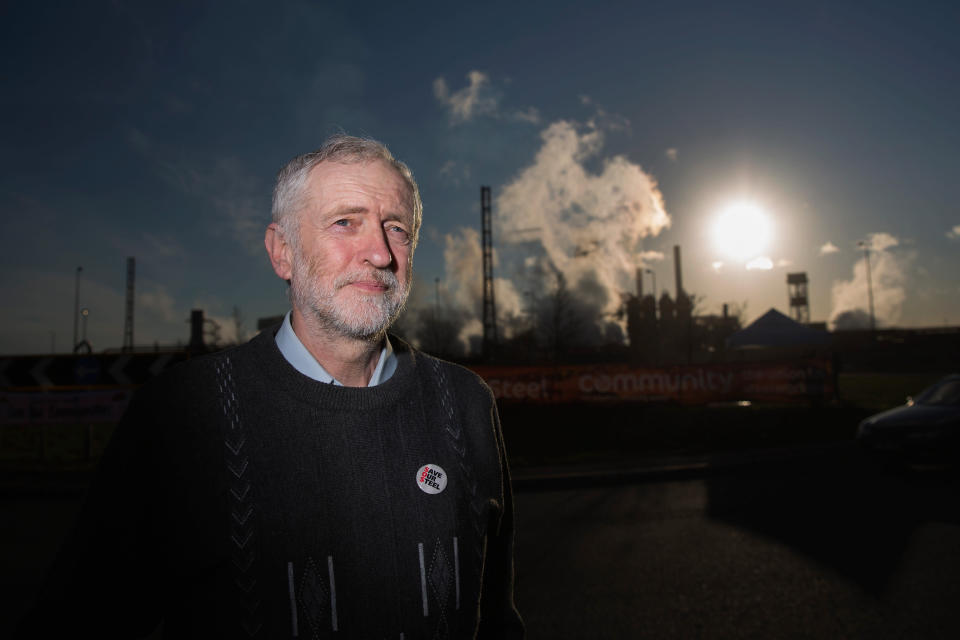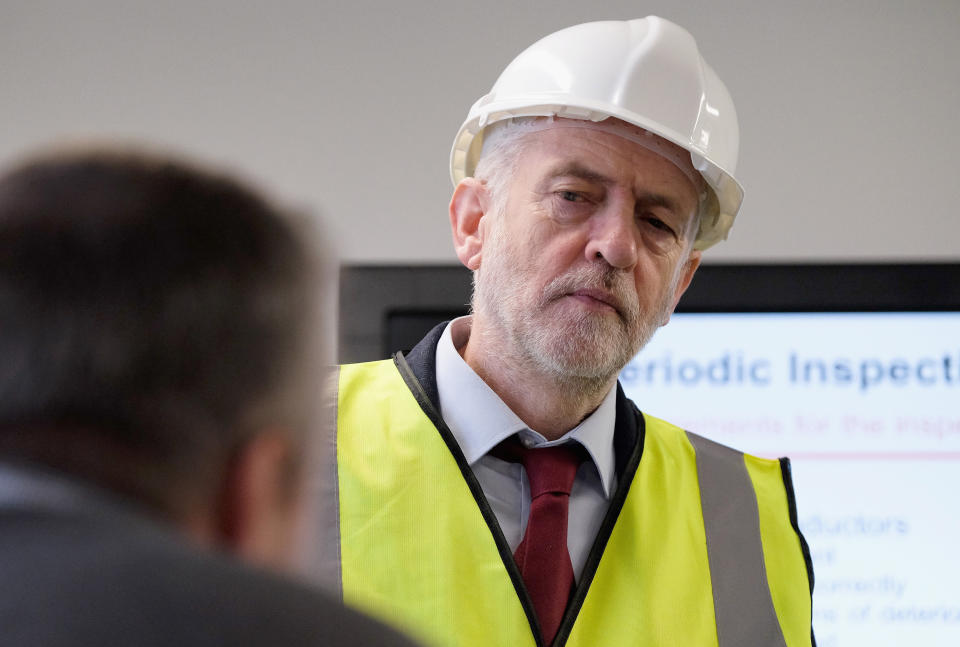Everything you need to know about Labour's big nationalisation plans

The Labour party unveiled radical plans to bring several major British industries into public ownership earlier this month, sending the share price of utility firms tumbling.
Labour argues the public have been ripped off and poorly served by private firms running vital services.
But nationalisation would be highly controversial particularly if investors are not paid at market value, and politicians, experts and the public alike are deeply divided over its benefits.
What would Labour nationalise?
Opposition leader Jeremy Corbyn has said Labour plans to nationalise the UK’s energy, water and rail firms if Labour wins the next general election.
Some sectors have many different companies Labour would need to take control of, with more than 30 firms likely to be affected in the energy sector alone.
It has also proposed taking over the National Grid and Royal Mail, and potentially the private finance initiative (PFI) firms that have been used to fund new public buildings for more than a decade.
How would nationalisation work?
With the utilities, Labour would pass a law doing two things - creating new state-owned bodies to run the services, and transferring over the affected firms’ equity and possibly debt.
Its newly published blueprint includes a national energy agency to lead and regulate electricity and gas, bringing over staff from Ofgem, the National Grid and other firms.
But new regional agencies below it would own power distribution, accountable to “councils, workers and residents.” They could in turn hand the network over to any local councils keen to run their own services. Similar agencies would be created to take over the nationalised water firms in each region.
READ MORE: Corbyn’s former adviser calls him a ‘pro-Brexit buffoon’
The railways are a fairly unique case, as part of the network is already publicly owned and private firms merely have time-limited contracts to run the services.
Labour says it won’t buy the firms, instead letting contracts expire and replacing them with public operators. But that will take years, and it may face demands to step in sooner.
Would nationalised services be better or cheaper?
Rows over the quality of nationalised versus privatised services have dogged British politics for decades, often splitting on ideological and party-political lines.
There are deep divisions over whether more political involvement at the expense of business involvement makes for better or worse decision-making, and over whose interests such organisations should serve.
For almost every example of a heavily criticised state-run company like British Rail, there is usually an example at home or abroad of a private firm heavily criticised for its handling of similar services.
READ MORE: Why the OECD says Britain shouldn’t brag over record employment
Labour says ending the need for profits, dividends and duplicated services would free up cash to cut prices for users and invest in a greener future. It says water bills have risen 40% since privatisation in 1989.
But companies defend competition and the profit motive, and Severn Trent’s chief executive warned on Tuesday customers would pay £120 more a year if water had not been privatised. SSE also said recently that electricity prices were cheaper than before privatisation.
Meanwhile the National Grid warned the massive upheaval of nationalisation would delay and take money away from investment in decarbonisation. The debate will run and run.
Has Britain nationalised firms before?

British governments have nationalised many firms in the past, and previously ran several of the sectors affected before they were privatised in the 1980s. Other firms like BT, BA and the old British Steel were all publicly owned for many years.
But a review of nationalisation published on Tuesday by the law firm Clifford Chance says the state has tended to step in at times of crisis, such as the railways after the Second World War, carmakers in the 1970s and the banking sector in 2008-9.
By contrast, Labour’s plans to take over firms seen as successful by shareholders would make for an “unprecedented programme,” it says.
Dan Neidle, the report’s author, told Yahoo Finance UK nationalisation was also a complex process, estimating it would take a year to draft a bill for a single sector alone. “You have to identify the bits of companies you want to nationalise, and the bits you don’t,” he said.
The report notes Labour’s 1974 pledge to nationalise shipbuilding and aerospace faced so many hurdles it took three years to become law, shortly before the government lost its majority.
Will Labour compensate investors?
Labour says it will compensate investors by issuing them new government bonds, and says it is ‘cost-neutral’ as the state gains a profitable asset.
But critics raise eyebrows at a socialist government transferring taxpayers’ money to investors, and taking on companies’ huge debts.
And Labour’s admission it may deliberately pay investors’ less than the market value of their holdings is hugely controversial.
It argues that asset stripping, land sales, pension fund deficits and previous state subsidies at the relevant firms could justify paying less.
But Clifford Chance research says this would be almost unprecedented, with virtually every past nationalisation in Britain or abroad at least nominally at market value.
“The only one that’s done it is Venezuela,” said Neidle.
Trade body Water UK has warned it could be a “devastating blow” for millions of pensioners with savings in pots like BT’s pension fund, which owns part of Thames Water.
How much would nationalisation cost?
Estimating the total cost of nationalisation is far from easy.
For example, Labour has quoted the book value of water firm shareholders’ equity at just under £15bn, but the Social Market Foundation puts their market value at £44bn and says nationalisation would cost £90bn.
Costs depend on how market value is decided, which assets and debts are nationalised and whether some debts have clauses requiring immediate payment.
Crucial is the time period over which firms’ value is calculated, as share prices will have clearly moved before and during the planned takeover.
Is paying investors less than market value legal?
Labour argues that the law allows parliament to decide compensation levels, and cites the Northern Rock nationalisation as precedent for paying sub-market compensation.
But Clifford Chance says the Northern Rock intervention to protect the financial system was “no precedent” for profitable utility firms. It says that takeover did involve paying market value too - but Northern Rock’s was judged to be nil.
It says fair compensation is expected under international law, as well as international norms. That means Labour’s plan would “almost inevitably trigger compensation claims by investors.”
Some investors are protected by their countries’ treaties with Britain.
Neidle said they had the best chance of winning claims, and it would be an “unholy mess” if Labour then failed to also pay UK and other investors the same rate.
As Neidle points out: “The idea you pay 60p to a British pensioner and 100p to an international investor seems far-fetched.”
All investors could also argue their right to property had been breached under international law, though Neidle’s report suggests such claims “face greater challenges.”
READ MORE: 25,000 jobs at risk as British Steel battles to survive

 Yahoo Finance
Yahoo Finance 